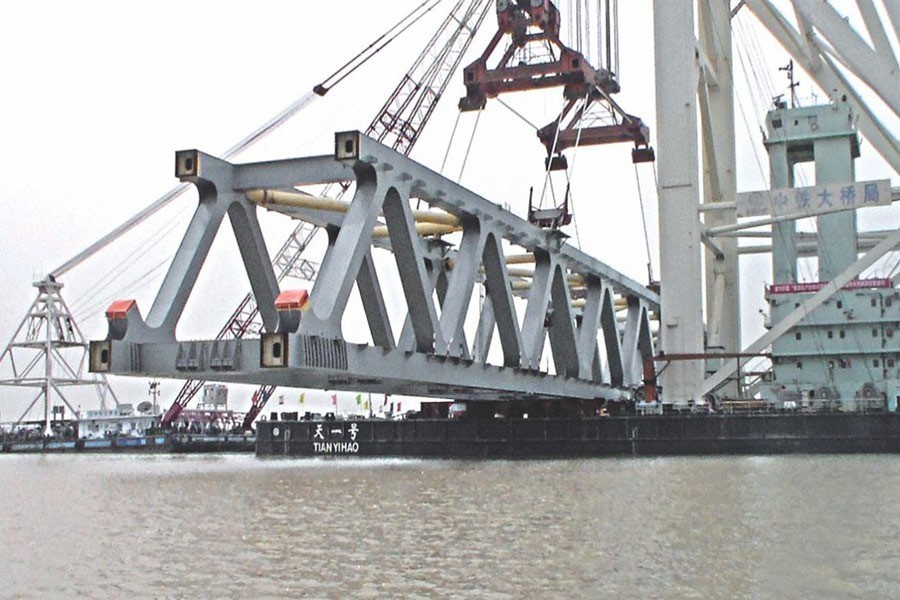'Slow progress in project execution irks ADB', screamed the headline of a front-page story of last Saturday's issue of The Financial Express (FE). The Manila-based multilateral lender has reasons to be irked, for more than 40 projects out of 52 being implemented using its funds valued at US$12.03 billion have been progressing at a slow pace.
The lender has decided to sit with the officials of the project-executing agencies and the Economic Relations Division (ERD) to discuss the issue sometime later this month. At the meeting, according to the FE report, the ADB may warn of withdrawing its funds from the worst-performing projects. The much-discussed bus-rapid transit (BRT) project is among the slow-moving ones.
The delay in project execution has been a chronic problem in the country's development administration. The issue has angered almost all barring those directly involved in the implementation of development projects, big or small. Even the key policymakers have expressed their deep dissatisfaction, from time to time, over the slow-moving projects, alleging that the delay very often leads to cost escalation.
But annoyance or expression of dissatisfaction did not help much. Instead of showing any improvement, the execution delays, in most cases, are now even longer. Some mega projects have been the victims of such delays.
The Covid-19 pandemic has been one of the major reasons for the delay in project execution over the last two years. But the pre-pandemic years had not been any better. Most segments of development projects, starting from their approval down to procurement of goods and services, face delays. No amount of criticism could help the executing agencies resolve their problems in this respect.
Newspapers have been publishing reports from time to time, highlighting the slow implementation of the annual development programmes (ADPs). Until the third quarter of every financial year, the progress in ADP implementation remains disappointingly low. Because of the low implementation, in the third quarter, ritualistically, the ADP size is trimmed.
In the final quarter, however, the execution rate of ADP increases sharply. It is truly difficult to track the reasons for such a rise. Funds meant for projects are released in bulk or at one go to show the project execution rate at a higher level. This practice has been going on for years, with the actual implementation rate remaining at an unsatisfactory level.
It has become more of a routine affair to extend the life of projects more than once along with a hike in their costs. The line ministries, however, give special attention to mega and priority projects and since people in authority take special interest in those. Yet problems of various types affect their implementation too. Some mega or priority projects often suffer a setback because of problems such as bureaucratic complexities, lack of transparency and accountability and poor monitoring by the relevant official agencies.
What has been ailing the country's development administration most is the inadequate capacity of the executing agencies. The ministries and divisions concerned are not adequately equipped, in terms of manpower and logistics, to devise plans and execute those. Other troubling issues include a frequent change of project directors (PDs), involvement of one PD in the execution of more than one project, and appointment of people with no prior experience in project execution as PDs.
For instance, the ministry of health is one of the poor performers as far as ADP execution is concerned. This ministry allegedly appoints physicians as PDs for several development projects. Such appointment reportedly has been affecting project execution. This was evident when the Covid-19 infections and fatalities were at their peak.
Some other factors, including the absence of discipline in the selection of development projects and political interference, have also emerged as major weaknesses that have remained unaddressed for long. The act of thrusting politically motivated projects on the planning commission for inclusion in the ADP has gained pace lately.
In violation of normal procedure, projects are included in the ADP sans feasibility studies. This deficiency often leads to the wastage of taxpayers' money. Submission of feasibility needs to be made mandatory for every project. The PC should not entertain any project without such a report.
Implementation snags in the development projects are nothing unusual. It happens in one or two projects, even in developed economies. But, the problem is deep and systemic here. All concerned are aware of the factors hurting the development project execution pace and quality and have, from time to time, underscored the need for streamlining the development administration. But the fact remains that there have not been serious efforts to achieve that.
Undeniably, the act of streamlining the development administration should begin with the ministries/ agencies of the government. These entities must have qualified personnel who can oversee project preparation and execution. Special attention needs to be given to the appointment of PDs, as the execution of projects on time largely depends on their ability and competence. Last but not least, the IMED (implementation, monitoring and evaluation division) has to be strengthened to meet the challenge.


